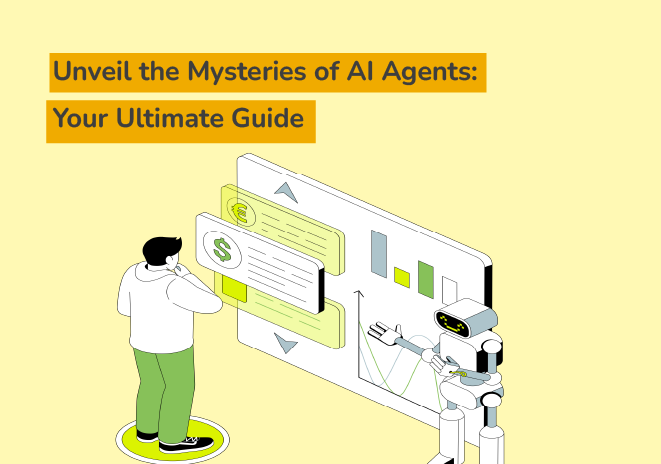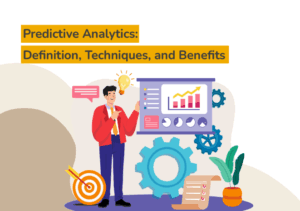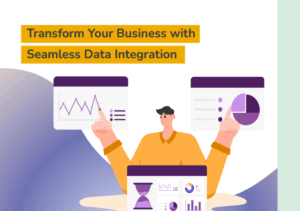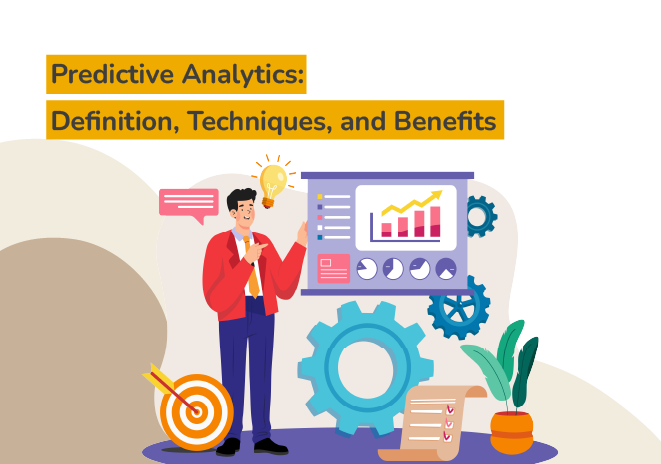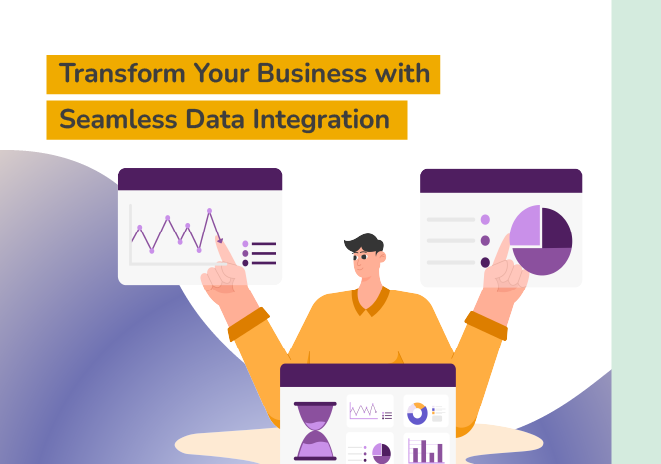What are AI Agents?
AI
agents are
programmed entities that perform tasks on behalf of users by perceiving their environment. They are defined as
autonomous systems designed to process information, make decisions, and take actions. Key
characteristics include adaptability,
intelligence, and learning capabilities. These systems can execute
complex tasks, leverage data, and enhance human capabilities by automating repetitive jobs while improving
efficiency and
accuracy.
Key Takeaways
- AI agents are autonomous systems designed to process information, make decisions, and perform tasks.
- Key characteristics of AI agents include adaptability, intelligence, and learning capabilities.
- The primary types of AI agents are reactive, proactive, and hybrid agents.
- AI agents enhance human capabilities through automation, improving efficiency and accuracy.
- Implementing AI agents can significantly boost operational efficiency and reduce costs.
- Challenges with AI agents include ethical concerns, privacy issues, and security risks.
- The future of AI agents involves enhanced sophistication, deeper integration into daily life, and a focus on ethical and security considerations.
Definition of AI Agents
AI agents, at their core, are
software programs designed to perform tasks autonomously. They possess the ability to perceive their environment, process the gathered data, and make informed decisions. Often integrated with
machine learning and
natural language processing, these agents can efficiently solve complex problems, interacting seamlessly with humans and systems to deliver valuable insights and results.
Key Characteristics of AI Agents
AI agents are increasingly crucial due to their unique attributes. They exhibit autonomy, allowing them to perform tasks without constant human intervention. Their adaptability ensures they learn and evolve over time, improving their functionality. Moreover, these agents possess the ability to interact with other agents and systems, enhancing their effectiveness. Such characteristics make AI agents valuable across diverse sectors, fostering innovation and efficiency.
How do AI Agents Work?
AI agents operate through a combination of advanced algorithms and machine learning techniques, allowing them to perceive their environment, process data, and make decisions. They rely on technologies such as neural networks and natural language processing to simulate human-like intelligence. These agents analyze extensive datasets to predict outcomes and optimize tasks, making them invaluable in various industries.
Basic Principles Behind AI Agents
AI agents operate by mimicking
human decision-making and actions. They utilize algorithms that enable
data processing, analysis, and
learning from experiences to make informed choices. These agents leverage
machine learning,
natural language processing, and other sophisticated technologies to optimize performance. By understanding user
preferences and adapting to new situations, AI agents continuously improve their functionalities, opening possibilities for
automation and
innovation across diverse sectors.
Technologies Involved in AI Agents
The core of AI agents incorporates a variety of cutting-edge technologies that enable them to think, learn, and evolve. Central to their operation are machine learning and deep learning algorithms, which empower these agents to process and analyze vast amounts of data. Additionally, technologies like natural language processing and computer vision play crucial roles, allowing AI agents to interact and understand the world similarly to humans.
What are the Types of AI Agents?
AI agents are revolutionizing various sectors by providing tailored solutions through distinctive types. The primary types of AI agents include reactive, proactive, and hybrid agents.
Reactive agents base actions on current inputs,
proactive agents anticipate future states to make decisions, and
hybrid agents combine elements of both, offering flexible and robust solutions for more complex tasks.
Reactive AI Agents
Reactive AI agents are a type of artificial intelligence that operates based on pre-defined rules and immediate inputs, without holding onto past information. These agents thrive in predictable environments, excelling at performing simple tasks quickly and efficiently. By focusing on current inputs, reactive AI agents are efficient in various applications, making decisions without the need for extensive historical data or complex reasoning.
| Characteristic |
Description |
| Learning Capability |
Limited to none |
| Memory Use |
No use of past data |
| Operation |
Based solely on current inputs |
Proactive AI Agents
Proactive AI agents are more advanced than their reactive counterparts, characterized by their ability to make decisions based not only on present stimuli but also on forecasting future conditions. These
autonomous systems utilize
machine learning and
data analytics to anticipate and respond proactively, providing solutions that adapt to evolving environments and user needs, enhancing efficiency across various applications.
Hybrid AI Agents
Hybrid AI agents combine the strengths of both reactive and proactive AI, providing advanced capabilities that adapt to diverse environments. These agents excel by anticipating future events while responding to current stimuli, making them ideal for complex problem-solving. This synergy enhances performance across sectors such as healthcare, business, and technology, offering unprecedented flexibility and intelligence in decision-making processes.
What are the Uses of AI Agents?
AI agents have revolutionized various
industries by automating tasks, enhancing decision-making, and improving service delivery. In
business, AI agents streamline operations by handling customer queries through chatbots, analyzing market trends, and optimizing supply chains. In
healthcare, they assist in patient diagnostics, personalized treatments, and managing health records. Furthermore, AI agents play a vital role in
everyday life, from personal assistants like Siri to smart home systems, proving their versatility and indispensability.
AI Agents in Business
AI agents are transforming the business landscape by leveraging advanced algorithms and machine learning to optimize operations and enhance decision-making. They streamline processes across various sectors such as customer service, data analysis, and workflow automation. Companies benefit from improved efficiency, reduced costs, and a competitive edge by implementing AI solutions. Harnessing the power of AI agents enables businesses to stay ahead in a rapidly evolving market.
AI Agents in Healthcare
AI agents are transforming
healthcare by enhancing
diagnostic accuracy, streamlining patient management, and revolutionizing treatment planning. Through machine learning and
natural language processing algorithms, AI agents assist in interpreting medical data, thus improving healthcare delivery and patient outcomes. Moreover, they support healthcare professionals by automating routine tasks, allowing them to focus on more complex patient needs and providing personalized care.
AI Agents in Everyday Life
AI agents are seamlessly integrating into our daily lives, transforming the way we interact with technology. These advanced systems handle tasks ranging from managing smart home devices to providing personalized recommendations online. By learning user behaviors, AI agents offer a customized experience that enhances convenience and streamlines routine activities, making our everyday interactions more efficient and intuitive.
What are the Benefits of Using AI Agents?
Harnessing the power of AI agents offers numerous advantages that can transform various industries. By utilizing AI agents, businesses can achieve increased efficiency, significantly reducing the time and effort required for complex tasks. Additionally, AI agents facilitate cost reduction by optimizing resource allocation and minimizing waste. Moreover, the inherent ability of AI agents to process and analyze vast amounts of data ensures improved accuracy and decision-making capabilities, which are crucial in today’s fast-paced world.
„Benefits of AI agents include increased efficiency, cost reduction, and improved accuracy, making them invaluable across various sectors.“
Increased Efficiency
Unlocking the potential of AI agents can significantly boost operational efficiency, particularly in business and industrial domains. These intelligent systems streamline processes, reduce inherent delays, and optimize workflow, ensuring tasks are completed swiftly and accurately. By automating repetitive tasks, AI agents allow human resources to focus on more cognitive and strategic activities, enhancing both productivity and the overall quality of output.
Cost Reduction
Harnessing the power of
AI agents is crucial for achieving substantial cost reduction in various industries. These intelligent systems streamline processes by automating repetitive tasks, minimizing human error, and optimizing resource allocation. By reducing labor and operational costs, AI agents contribute to enhanced
profit margins and overall
financial sustainability. Companies leveraging AI are positioned to maintain a competitive edge through more efficient business operations.
Improved Accuracy
AI agents revolutionize industries by delivering improved accuracy in data analysis, decision-making, and operations. Their advanced algorithms and machine learning capabilities enable them to process vast amounts of data instantly, minimizing human error and boosting precision. By leveraging real-time data and predictive insights, AI agents ensure that businesses and professionals can achieve superior results, enhance quality control, and drive better outcomes.
What are the Challenges Associated With AI Agents?
AI agents pose several challenges that organizations must address.
Ethical concerns arise due to potential biases and decision-making transparency.
Privacy issues are critical as AI systems often collect and process vast amounts of personal data.
Security risks include the vulnerabilities AI agents might expose, leaving systems open to cyber-attacks. Properly managing these challenges is essential for the responsible implementation of AI agents.
Ethical Concerns
Ethical concerns surrounding AI agents are a pivotal aspect of their integration into various sectors. As AI agents grow more
autonomous and influential, questions about
bias,
transparency, and
decision-making ethics are increasingly significant. Addressing these concerns requires a multi-faceted approach involving
regulatory frameworks,
community engagement, and
ongoing monitoring to ensure the responsible development and deployment of AI technologies.
| Ethical Concerns |
Description |
| Bias |
Potential for inequality in AI decisions due to skewed data. |
| Transparency |
Opacity in AI algorithms and processes. |
| Decision-making |
Ensuring fairness and accountability in AI-led outcomes. |
Privacy Issues
AI agents, while powerful, raise significant privacy issues that demand attention. As these agents handle sensitive data, ensuring robust data protection protocols is crucial. Safeguarding user information involves implementing advanced encryption, maintaining data anonymization, and ensuring compliance with data privacy regulations. Businesses must prioritize transparency to build trust with users, thereby minimizing potential risks associated with data breaches and unauthorized access.
Security Risks
AI agents, while revolutionary, come with significant
security risks. These risks include potential
data breaches, susceptibility to
cyberattacks, and unauthorized
access to sensitive information. To mitigate these challenges, organizations must implement robust
security measures and continuous monitoring systems. Regular updates, strong authentication protocols, and strict data access controls are essential to protect against exploitation and ensure the safe deployment of AI agents.
How to Implement AI Agents in Your Organization?
Implementing
AI agents in your organization can significantly enhance operational efficiency. Start by analyzing your current workflows to identify areas where automation will be most beneficial. Investing in the right AI technologies and including personnel in the integration process ensures smooth adoption. Equipping staff with training seminars on new systems is crucial, coupled with maintaining updated databases for performance monitoring and ongoing adjustments over time.
Steps to Integrate AI Agents
Integrating AI agents into your organization requires a strategic approach to ensure seamless adoption and optimal performance. Begin by
assessing your needs to determine where AI can add value. Next, choose the right AI tools and develop a robust infrastructure that supports your agents. Training your team to work alongside AI will enhance human-agent collaboration, leading to greater efficiency and innovation.
Best Practices for Implementing AI
Implementing AI agents effectively requires a strategic approach. Begin with a clear
vision of AI’s role in your organization. Prioritize
data quality to ensure AI accuracy and deeply integrate these agents into your
workflows for optimal results. Collaborative engagement with
stakeholders aids in smooth transitions. Finally, consistent
evaluation and updates are vital to harness AI’s
full potential and maintain a competitive edge.
What is the Future of AI Agents?
The future of AI agents promises transformative advancements, with emerging trends reshaping industries. As artificial intelligence continues to evolve, AI agents are set to become more sophisticated, offering enhanced efficiency and automation. Future prospects include deeper integration into our daily lives, with ongoing developments focusing on ethical considerations and security. This evolving landscape urges businesses to stay informed and adapt to innovative solutions.
Emerging Trends in AI Agents
AI agents are evolving rapidly, paving the way for groundbreaking trends that promise to revolutionize various industries. These trends focus on enhancing autonomy, interaction, and learning abilities of AI agents, making them more sophisticated and integral to everyday operations. As AI continues to advance, expect significant transformations in fields such as business, healthcare, and technology, ultimately driving innovation and efficiency.
Future Prospects and Developments
The future of
AI agents promises remarkable advances, with trends pointing towards increased integration and adaptability in various sectors. These agents are expected to enhance capabilities through innovations in
machine learning and
natural language processing, enabling more seamless human interaction. Emerging developments focus on creating AI agents that can operate autonomously, making decisions in real-time, and providing personalized solutions tailored to user needs.
- Increased integration and adaptability
- Enhanced capabilities through machine learning
- Seamless human interaction
- Autonomous operation and real-time decision-making
- Personalized user solutions
FAQ
What are AI agents?
AI agents are programmed entities that perform tasks on behalf of users by perceiving their environment, defined as autonomous systems designed to process information, make decisions, and take actions.
How do AI agents work?
AI agents operate through advanced algorithms and machine learning techniques, using technologies such as neural networks and natural language processing to simulate human-like intelligence and optimize tasks.
What are the types of AI agents?
The primary types are reactive, proactive, and hybrid agents; reactive agents base actions on current inputs, proactive agents anticipate future states, and hybrid agents combine elements of both.
What are the benefits of using AI agents?
Benefits include increased efficiency, cost reduction, and improved accuracy, making them invaluable across various sectors.
What are the challenges associated with AI agents?
Challenges include ethical concerns such as bias and transparency, privacy issues due to data collection, and security risks linked to potential cyber-attacks.
How can AI agents be implemented in an organization?
Implementing AI agents involves identifying automation opportunities, choosing the right technologies, training personnel, and maintaining updated systems for performance monitoring.
What does the future hold for AI agents?
The future of AI agents promises transformative advancements with trends towards enhanced efficiency, deeper integration, and ongoing focus on ethical considerations and security.

